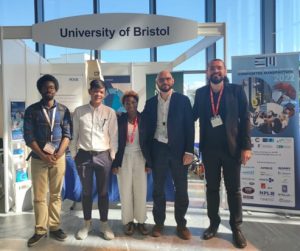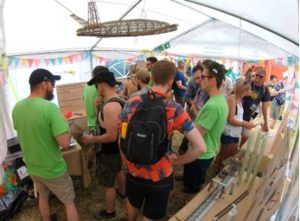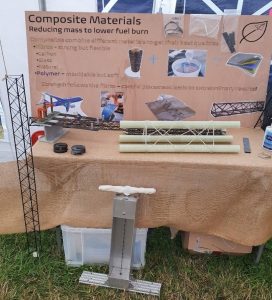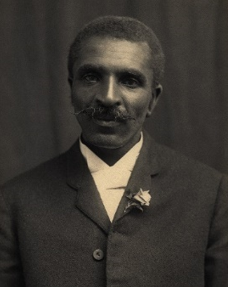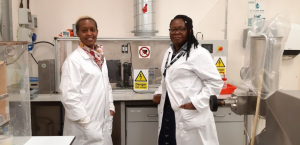Testing the Mechanical Performance of Nature Fibre Composites.
 by Owen Tyley owen.tyley.2019@bristol.ac.uk; Tobias Laux tobi.laux@bristol.ac.uk; Neha Chandarana neha.chandarana@bristol.ac.uk
by Owen Tyley owen.tyley.2019@bristol.ac.uk; Tobias Laux tobi.laux@bristol.ac.uk; Neha Chandarana neha.chandarana@bristol.ac.uk
Manufacturers are increasingly looking to develop new natural fibre composites (NFCs) to lower the environmental impact of structures such as wind turbine blades and automotive panelling. For these to be brought to market, their mechanical performance must be understood throughout their operating temperature range. This is ordinarily conducted using strain gauges, though the cost of purchasing and installing strain gauges makes this a relatively expensive undertaking. By contrast, digital image correlation (DIC) is an optically-based imaging technique which can determine the strains on an object such as a standardised testing coupon, at much lower cost. However, the reliability of DIC for composite coupons at elevated temperatures is not well-understood.
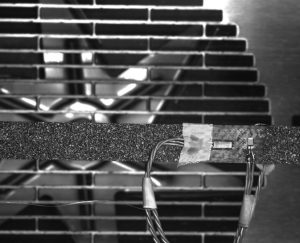
As part of a summer internship project supported by the Henry Royce Institute for Advanced Materials, the tensile moduli of flax- and carbon-fibre reinforced polymers using both DIC and strain gauges at temperatures up to 120°C were compared. Preliminary results suggest that the modulus as determined through DIC is the same as for strain gauges, but with greater uncertainties. It is therefore suggested that DIC could be a suitable method for determining the mechanical properties of NFCs for non-safety-critical applications, and as part of early-stage research and development for new natural-fibre composites.
Flax: A sustainable alternative to glass fibres in wind turbines?

by Abdirahman Sheik Hassan a.sh.2019@bristol.ac.uk; Neha Chandarana neha.chandarana@bristol.ac.uk ; Terence Macquart
Flax-fibre composites have been widely praised as a high-performance sustainable alternative to synthetic fibres in the composites industry. However, as with many natural fibre composites, the mechanical properties (strength, stiffness) of flax-fibre composites do not match up to their synthetic counterparts. This study assesses the suitability of flax-fibre reinforced composites as a replacement for glass-fibre composites in the context of a wind turbine blade using a life cycle engineering approach.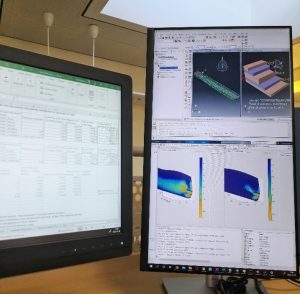 Finite element analysis (FEA) was used to determine the design alterations required for comparable performance, followed by a cradle-to-grave life cycle assessment to ascertain the subsequent environmental impact of these alterations. The preliminary results show a significantly greater volume of material is required in a flax-fibre blade to match reserve factor and deflection requirements; however, these models do show reduced environmental impact compared with the glass-fibre composite blades. End-of-life options assessed include landfill and incineration, with and without energy reclamation.
Finite element analysis (FEA) was used to determine the design alterations required for comparable performance, followed by a cradle-to-grave life cycle assessment to ascertain the subsequent environmental impact of these alterations. The preliminary results show a significantly greater volume of material is required in a flax-fibre blade to match reserve factor and deflection requirements; however, these models do show reduced environmental impact compared with the glass-fibre composite blades. End-of-life options assessed include landfill and incineration, with and without energy reclamation.
Amphiphilic Cellulous for Emulsion Stabilisation and Thermoplastic Composites.

 by Amaka Onyianta a.j.onyianta@bristol.ac.uk; Steve Eichhorn s.j.eichhorn@bristol.ac.uk
by Amaka Onyianta a.j.onyianta@bristol.ac.uk; Steve Eichhorn s.j.eichhorn@bristol.ac.uk
Biobased polymers, commonly referred to as bioplastics, are made from plant or other biological material instead of petroleum. They, therefore, present opportunities for the development of sustainable plastics from a wide range of pre-cursors including corn, vegetable oil and cellulose. Cellulose, the most abundant polymer on earth, is also renewable material available from vast resources such as wood, plant, bacteria and even sea animal tunicates. Considerable research efforts have been put into developing cellulose-based biopolymers. However, despite all its advantages, cellulose due to its hydrophilic (water-loving) nature presents a significant challenge with respect to blending with other polymers which are often hydrophobic (water-repelling).
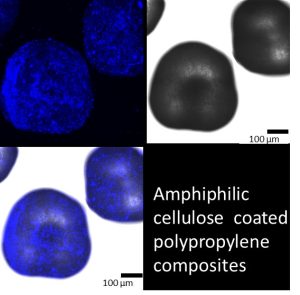
To address this challenge, our group is exploring surface modification of cellulose to make it hydrophobic. One such modification we have investigated results in a material that is not only hydrophobic, but largely retains the inherent hydrophilicity of cellulose, leading to an all-new class of material: amphiphilic cellulose. Due to this amphiphilic nature, the cellulose can stabilise oil-in-water emulsions, making it attractive for various applications including in the personal care products sector where consumer desire for nature-based products is increasingly driving demand.
It is also recognised that while material sources can be sustainable, processing techniques also need to be sustainable for this credential to hold for the final product. Work within our group is therefore also looking into aqueous processing of amphiphilic cellulose with thermoplastics to yield biobased sustainable composite materials with improved tensile modulus. Moreover, the melting profile of the thermoplastic is not affected by the process, neither is a pre-step of compounding needed as seen in the traditional process for incorporation of fillers in thermoplastic composites.

